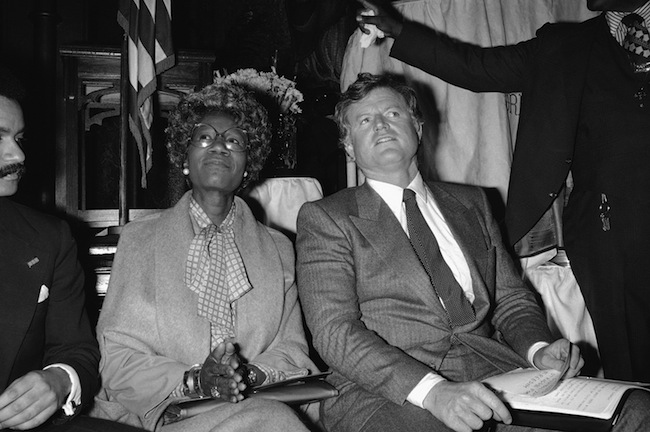Chisholm tribute airs clash over abortion rights in poor communities

Forty years after Shirley Chisholm became the first black woman to run as a major-party presidential candidate, her supporters gathered Tuesday at the Brooklyn College Library to celebrate her life. And back in 1969, Chisholm defended the need for abortion rights in front of the House of Representatives.
“Black female politician activists like Shirley Chisholm were among the first to defend black women’s access to birth control and legal abortion,” said Iris Lopez, 59, a professor of sociology and the co-director of the Program of Latin American and Latino Studies at City College. “She and other women fought for quality health care and better living conditions as a part of women of color reproductive rights campaign.”
Buttons and cups with the Shirley Chisholm Project’s logo lay on a table at the entrance to the library’s auditorium. At 6 p.m. last week Satruday, crowds who were milling outside, started pouring into the auditorium. And within minutes the 150-strong auditorium was packed to capacity.